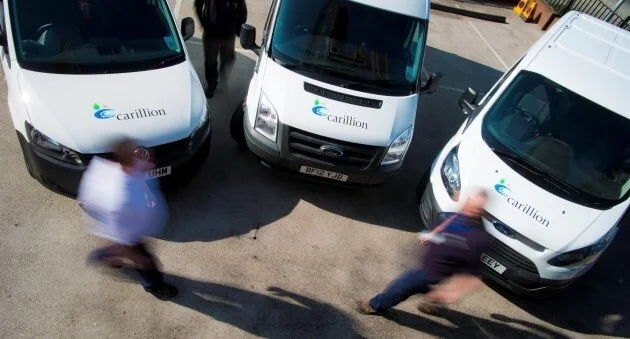Does the fall of Carillion Contractor prove that the construction industry model is broken?
The Government this morning announced that it will not bail out Carillion spelling the end of the UK’s 2nd largest construction company.
For no Government bailout to happen means that the auditors and creditors assessing the company know the sheer scale of the mess that lies beneath. It's not gone into administration where profitable bits can be salvaged and sold off; it’s gone into liquidation where things are so bad it's effectively being closed down. In effect, a lid can no longer be kept on the sheer level of mounting debt and mismanagement.
Just look at some of the building industry’s main industry magazines and you can see the sheer scale of the problem. Major construction players are regularly posting profit warnings and making announcements about losses and problem jobs; this cannot be solely attributed to the uncertainty that Brexit is bringing to the sector.
There is a much more fundamental issue at play here which the industry, clients and Government need to address now before more major companies go the same way as Carillion.
Some of the key issues are:
Pricing and profit margins for major contractors must be reviewed
Big projects, come with big risks and unknowns. Even with great pre-planning, a contractor never truly knows what they’re up against on site until they are physically on site. The days of contractors being rewarded handsomely for these risks are long gone. Now, for many major projects, it is very much a race to the bottom.
I remember working for a large company bidding for a major Government contract where we had to take part in a reverse auction. So, we had costed out the work, the costs of delivery and our margin and submitted our costs accordingly. We then had to log in and take part in a live auction against our competition where people literally put in lower and lower bids to win the work.
So, common sense and sound business decision making for many firms went out of the window. Many large firms took the gamble and bet on the fact that the benefits of economies of scale, tight management and a tough focus on costs and luck, would see them through. Now it’s clear that this model is seriously flawed.
Construction leaders still live in the dark ages
Many construction companies are run by people who have come up through the ranks with a traditional view of success being winning trophy projects and generating higher revenue. In many respects, it’s a case of ‘good old male bravado’ whereby they want to win the biggest most prestigious project regardless of costs is still prevalent.
To change this, there needs to be more diversity in the board room. People drawn from diverse backgrounds and sectors who are empowered to ask the right questions that enable companies to make better business decisions should be the norm. Currently, boards often comprise a raft of people cut from the same cloth with the same views, and ideals. Boards need to be open to more strategic ways of leadership and management where they can guide a business with a focus on delivering value. They need to invest in talent, innovation and systems that allow them to provide services that clients value and want to pay a premium for. The race to the bottom pricing model is unsustainable.
The supply chain is too exposed
Major contractors often are relatively lean organisations and rely on myriads of SME’s and mid-sized firms to carry out work on-site. Payments for large contracts will go to main contractors who then pay the smaller firms for their efforts, often with a 120-day payment term lag. Many main contractors are slow to pay their supply chain within 30 days, and in effect are using their supply chain below as another source of interest-free credit. With the fall of Carillion, there will be tens of thousands of smaller businesses who will be adversely affected not just by a loss of work but also by outstanding payments not being made.
The construction model must change
In summary, for the reasons mentioned above and many more, I truly believe the construction industry business model is broken. You could argue that getting the lowest cost gives the taxpayer and the private sector the best value but does it really?
Contractors are having to bid far too low to make their businesses viable. The risks no longer match the rewards. If we don’t want to see more major firms going into liquidation in the coming years, the Government, supply chain and private sector must work with main contractors to develop a new model for the industry. One that is more balanced and not based on the lowest priced bid alone but ultimately fair for all.
I’ve spent my career working in marketing for both large and small companies in the built environment sector which is how I’ve come to my views above. Low fees and margins are rife across the sector. So, do you agree with me that the construction model is broken? What changes do you think should be made to make it a fairer system for all? Are there more issues that need to be addressed?

